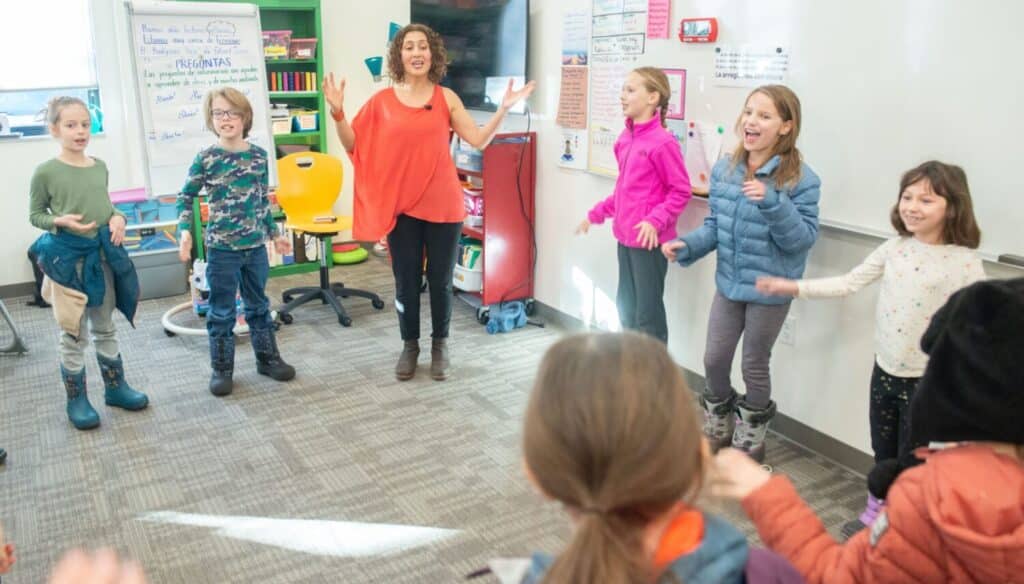
Recently there has been discussion in our education ranks about how students have not had an uninterrupted school year for over eighteen months. The disruption started at the end of the 2019–2020 school year, and we are still not back to normal. Yet we’ve persevered and continued creating highly engaging learning for our students by finding new ways of engaging and new modes of teaching, leading, and communicating. What are some of the new ideas that have become important parts of our repertoire in K–8 schools?
Educators have a renewed vision of what works in their schools and classrooms. Kristen Laitila, a third grade teacher in Mentor, Ohio, has found that the power of interaction has required a new look at engagement. She says, “My motto has been simple: take a step back, have fun, and then get to work! And when working, meet students where they are, which creates natural engagement rather than frustration. Also, I have found students have a need for a lot of talking among peers: partner talking, group talking, all the interactive learning structures. They are craving them!”
During the pandemic, Becky Wanless created a new way to showcase students’ work in her second grade classroom in New Albany, Ohio. Here’s how she describes it: “I started a celebration wall where students are invited to display a piece of work that they’re proud of—a drawing, the beginning of a story, a math workbook page, a kind note, etc. It really has warmed my heart to see the things students choose to hang and how proud they are of their work and the work of their peers (at all stages of learning). It also highlights that we’re a group with many talents and diverse strengths and it has generated a lot of excitement about their work and learning. I overhear ‘I’m going to hang this on the celebration wall’ a lot throughout the day.”
School leaders have also found ways to retool and reengage. Tina Miller, an elementary school principal in Wisconsin Rapids, Wisconsin, has found that her prerecorded video daily announcements have become a great way to feature local school “celebrities” as well as opportunities to remind everyone of social and emotional skills and schoolwide rules. She ends each announcement by saying, “Remember, Mrs. Miller loves you!” Throughout each day, students will ask Mrs. Miller to repeat those words again for support as they work to make the day a success.
Parents have found new avenues for school engagement as well. Recently a parent of a first and a third grader shared with me that her PTA’s Zoom meetings have allowed her to get involved for the first time. She is excited to have an easy opportunity to engage in the parent and teacher group. Similarly, many schools have added a virtual option for parent-teacher conferences that has increased attendance to almost 100 percent.
From Zoom meetings, Google Classrooms, and new technologies, to more interaction, increased focus on SEL, and more forms of parent-teacher communication, we have made incredible changes in the past eighteen months. As we reimagine teaching, communicating, and learning, perhaps the biggest thing we have learned is that we can make changes, take risks, and explore new models of engagement in our schools. It may have taken a global pandemic to make us realize it is possible, but now it’s exciting to look ahead and see what changes and innovations are yet to come!
Margie Dorshorst is a Curriculum and Instructional Designer and Consulting Teacher for the Center for Responsive Schools, and focuses on developing resources and supportive practices for K–8 educators and leaders.